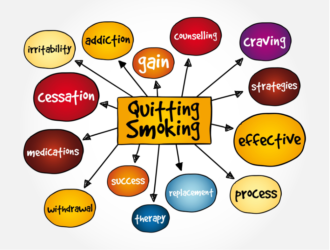What Does Nicotine Addiction Feel Like? Understanding Dependency

Navigating the journey of nicotine addiction can be daunting. The experience is not merely about cravings but often encompasses a complex web of physical, psychological, and emotional responses. To fully grasp what nicotine addiction feels like and how long it takes to get over nicotine addiction, let’s delve into some statistics, symptoms, and recovery paths.
Statistics: The Reality of Nicotine Addiction
- As of 2023, about 34 million adults in the U.S. smoke cigarettes, and most of them are dealing with nicotine addiction [1].
- It’s estimated that each day, about 2000 young adults in the U.S. smoke their first cigarette, putting them at risk of developing nicotine addiction [2].
- Reports indicate that nicotine is as addictive as heroin, cocaine, and alcohol [3].
- Studies suggest that approximately 50% of individuals who try to quit smoking without assistance relapse within two weeks [4].
The Experience: What Does Nicotine Addiction Feel Like?
Experiencing nicotine addiction goes beyond the occasional yearning for a cigarette. It’s a multifaceted experience that affects individuals on physical, mental, and emotional levels, all at once. Here’s a deeper look into the life of someone grappling with nicotine addiction:
- Cravings: The hallmark of any addiction is an intense desire for the substance in question. For nicotine addicts, this manifests as powerful urges to smoke or use tobacco products. These cravings can be triggered by various stimuli associated with smoking, such as having a cup of coffee, driving, or even eating.
- Withdrawal Symptoms: When an individual attempts to quit or can’t fulfill their craving, they typically experience withdrawal symptoms. These can range from physical discomforts like headaches, insomnia, and weight gain, to emotional and psychological challenges such as mood swings, anxiety, and depression.
- Habitual Behavior: Nicotine use often becomes deeply entwined with daily activities or routines, creating a strong association that can be difficult to break.
- Relapse: Despite determined efforts to quit, many individuals revert to smoking within a short period, primarily due to the challenging withdrawal symptoms.
Navigating Recovery: How Long Does it Take to Get Over Nicotine Addiction?

The burning question, “How long does it take to get over nicotine addiction?” has no definitive answer. Recovery timelines fluctuate greatly among individuals, depending on factors like the level and duration of nicotine use, overall health, and the specific cessation method.
Nonetheless, a typical journey to recovery might look like this:
- Within 72 hours: The body purges nicotine entirely, and withdrawal symptoms reach their peak.
- After one week: Most physical symptoms of nicotine withdrawal significantly diminish.
- 1-3 months: Improvements in circulation and lung function become noticeable.
- 1-9 months: Decreased coughing and shortness of breath.
- 1 year: The risk of heart disease is halved compared to a current smoker.
However, while physical recovery is a key aspect, it’s critical to remember that psychological dependencies may persist for longer. Building robust coping strategies and healthier habits is essential for maintaining long-term sobriety.
Conclusion
To summarize, the expedition through nicotine addiction is fraught with obstacles, but comprehending the journey ahead can equip those who aim to escape its clutches. By demystifying what nicotine addiction feels like and understanding how it works, the road to a nicotine-free existence can appear more navigable and less daunting.
References:
- CDC. (2023). Smoking and Tobacco Use; Fact Sheet; Adult Cigarette Smoking in the United States.
- U.S. Department of Health and Human Services. (2022). Preventing Tobacco Use Among Youth and Young Adults.
- National Institute on Drug Abuse.
- Hughes JR, Naud S., Keely J, (2004). Shape of the relapse curve. Long-term abstinence among untreated smokers. Addiction.
- American Cancer Society. (2019). Benefits of Quitting Smoking Over Time.





